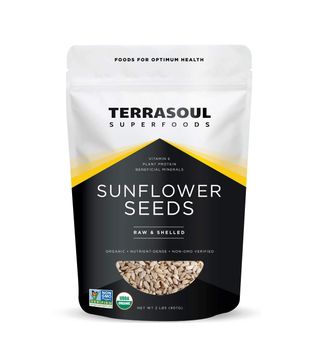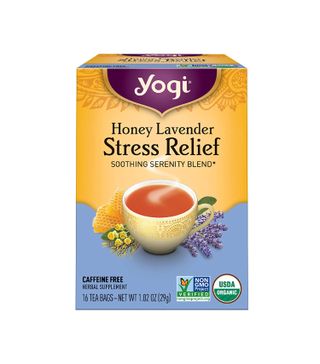21 Things to Do If You Want to Sleep Better
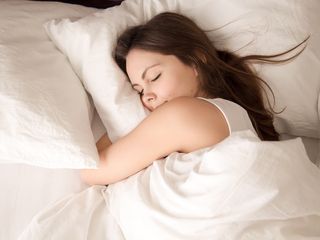
When you're having trouble sleeping, it can really throw everything off. According to the Cleveland Clinic, sleepiness can interfere with cognitive function, decision-making, performance at work and school, and mood. And, if left untreated, your inability to sleep can contribute to conditions like obesity, diabetes, and heart disease.
To sum it up, sleep is important. But it can seem like an endless cycle when you're spending more nights staring at your bedroom ceiling than drifting off to dreamland. You may feel stressed or frustrated with your sleep problems, which might even make the situation worse because you're worrying so much about it.
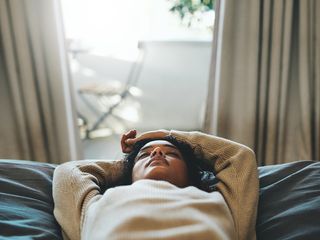
There are a number of reasons why you might be having trouble getting some shut-eye. Stress, depression, poor bedtime habits, sleep apnea, certain medications, and diet are some common factors, according to Harvard Health Publishing. Figuring out the root cause of sleeplessness might involve you going through your daily habits and mental-health state to see what could be the culprit.
"When a client comes to me and is having trouble sleeping, I look at everything going on in their life, including diet, exercise, and stress," says Sarah Rueven, MS, RDN, CDN, founder of Rooted Wellness. "All of these factors play a role in our ability to fall and stay asleep."
It's important to note, though, that there is a difference between insomnia and having trouble sleeping every now and then. According to the Office on Women's Health, insomnia is defined as "an inability to go to sleep, waking up too early, or feeling unrested after sleep for at least three nights a week for at least three months." If you are experiencing chronic insomnia, it might be beneficial to see a sleep doctor or healthcare professional who can advise on certain therapies or treatments.
While we recommend going to a professional first (especially if you have a serious problem), there are also some lifestyle and diet changes you can make that might help you get better sleep. The experts shared some tips with us below. Just remember that sleep is very individualized, so there's no one-size-fits-all approach when it comes to this.
Lifestyle Changes
Make a Routine
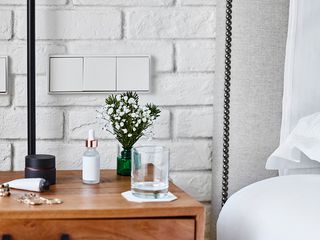
Setting a routine can help give your body cues that it's time to wind down and go to sleep. "Routine is everything. The body loves rhythm and predictability much like a young child needs theirs," explains Pedram Shojai, OMD, author of The Urban Monk and The Art of Stopping Time and founder of Well.org. "Closing your mental 'windows' or 'tabs' is a big part of the path to better sleep. Make the evenings about family, recovery, and some reading. Once the brain starts to sync up with this, it'll cue you to close your eyes and get some shut-eye."
Herbalist, acupuncturist, and founder of Vie Healing Mona Dan, LAc., MTOM, encourages each person to find their own rhythm. "I recommend finishing eating by 7 p.m., taking a hot shower, and then start winding down with a nourishing tea by 9 p.m., avoiding the things that stimulate you too much and allowing your body to rest and relax," she says.
Stick to Your Bedtime and Wake Time
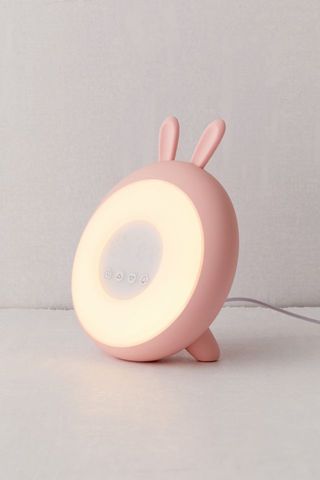
And once you have a routine, you should stick to it as much as possible. "Aim to go to sleep and wake up at the same time each day," Rueven recommends. "When we go to bed and wake up at around the same time each day, our bodies get into a habit and sleep comes easier. A good bedtime routine is going to signal to your brain and body that it's time to rest and relax."
Turn Off Electronics
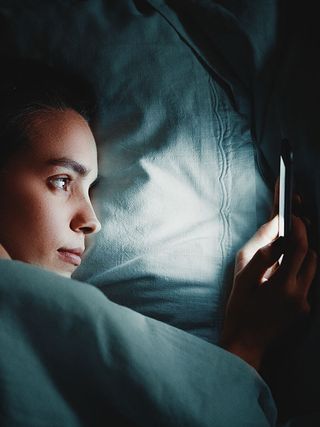
Just say no to those Instagram-scrolling black holes at 2 a.m. "Incorporating a good sleep-hygiene routine is very important," Rueven says. "I recommend turning off your smartphone, computer and TV at least an hour before bedtime. Blue light coming from these devices can reduce melatonin production and prevent sleep. Instead, wind down with a good book, a bath, or a cup of tea."
Cut Back on Alcohol

That nightcap might not be working in your favor. "Cutting back on your intake of alcohol can help improve sleep quality," Rueven says. "While a glass of wine before bed may reduce the amount of time it takes you to fall asleep, it also reduces the quality of your sleep. Even one serving of alcohol before bed can reduce the amount of time you spend in REM sleep, or the most restorative part of the sleep cycle."
Allow Your Body to Rest
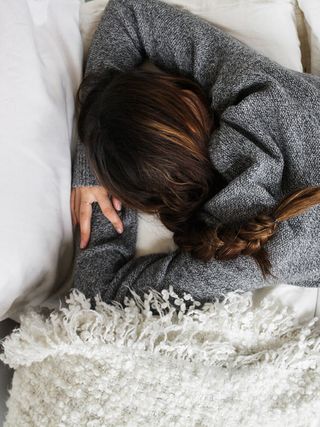
If you are tired throughout the day because of a lack of sleep, Dan recommends allowing your body to rest. Of course, you can't exactly nap during the workday, and you don't want to nap for too long because that will make your sleep problem even worse. But if you are able to rest for a bit, go for it. "When your body is giving you signals of sleep, you need to listen. This will help relax your nervous system and retrain your body to sleep properly again," Dan says.
Diet
Making sure you're getting the right vitamins and nutrients is key across the board, but it might also help your sleep patterns, to some effect. "There are certain foods that contain nutrients or compounds that are known to promote sleep. However, we really aren’t sure if the amount of these nutrients in food is enough to really move the needle when it comes to inducing sleepiness and/or promoting higher-quality sleep," Rueven says. "However, many of these foods are healthy foods that we should all be including in our diets regardless, so there’s no harm in giving them a shot if you are struggling to sleep!"
Eat Complex Carbs
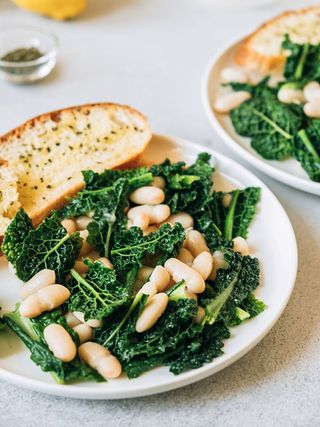
Complex carbohydrates—whole grains, legumes, fruit, and starchy vegetables—are already foods you should be adding to your diet, but they also have some sleep benefits because they stimulate serotonin production in the brain. "Serotonin is a neurotransmitter that impacts mood and sleep cycles and helps us feel sleepy and relaxed," Rueven explains.
Consume Foods With Melatonin or Tryptophan

"Foods that contain melatonin or tryptophan could also help you fall asleep," says Serena Poon, CN, CHC, CHN, chef, nutritionist, Reiki master, and founder of the Culinary Alchemy program. "Foods that contain melatonin include eggs, fish, and nuts. Foods containing tryptophan include nuts and seeds, chicken, turkey, and tofu."
Avoid Foods That Trigger Heartburn

Heartburn can be a common cause of insomnia. If you're someone who suffers from heartburn or GERD (gastroesophageal reflux disease), Rueven recommends you figure out what foods trigger it and avoid eating those before bedtime. "Lying down after eating can worsen symptoms," she adds. "Foods that often cause heartburn include spicy foods, tomatoes, citrus products, peppermint, chocolate, alcohol, caffeine, and fatty or fried foods. Give yourself at least two to three hours before lying down after a meal if you suffer from heartburn."
Snack on Nuts

"Nuts like walnuts and almonds contain melatonin and magnesium, two nutrients that are known to make us sleepy," Rueven says.
Don't Eat Too Close to Your Bedtime
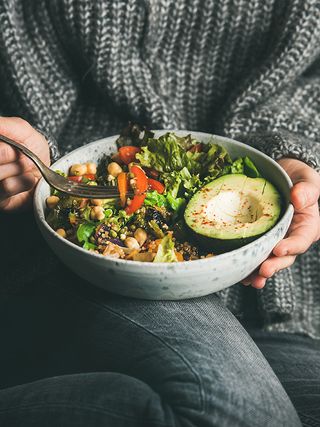
"It's recommended to stop eating about three hours before you go to sleep for the best-quality sleep," Poon says. "Eating too close to bedtime can disrupt sleep and also may lead to conditions such as acid reflux."
Try Magnesium-Rich Foods

Like we learned above, nuts have magnesium, which Poon says can help your body relax. "Magnesium is a mineral that plays a role in neural activity in our brains and may work in this way to help calm the brain and body," Rueven explains. "You can get magnesium from leafy greens, nuts, meat, fish, and fruit. Although magnesium supplements are quite common and trendy right now, I always suggest trying to meet your dietary needs from food first!"
Avoid Sugary Foods
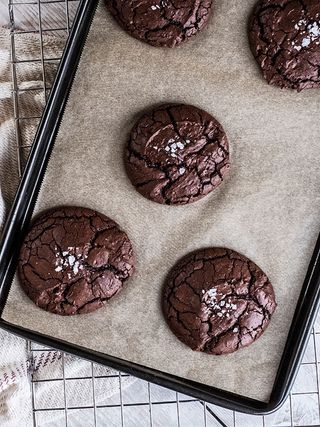
"If you eat a large, rich meal, foods with a lot of sugar or simple carbohydrates, or foods that are difficult to digest right before you go to bed, your body will be working to digest the food and not be able to rest and replenish," Poon says.
Herbs and Teas
Look for These Herbs

Poon says there are some herbs that are found in teas that can help you relax before bed, including chamomile, tulsi, rose, and lavender. "One of my favorite pre-bedtime recommendations is to sit down with a cup of warm herbal tea and a book or take a bath about an hour before bedtime," she says. "Not only are many herbal teas full of calming herbs, the simple act of disconnecting to mindfully enjoy a cup of tea will help you unwind into a relaxed pre-bedtime state."
Be Mindful of Your Caffeine Intake
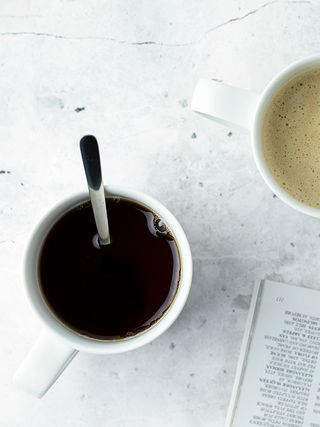
Some teas can have caffeine, too. So you'll want to watch out for that. "Avoiding caffeine in the afternoon is often necessary for many individuals," Rueven says. "Most people are aware that coffee has caffeine but often aren't aware of all of the foods and beverages containing caffeine. I'm seeing more and more nutrition bars and products packed with caffeine. Caffeine is also found in decaffeinated coffee, teas, soda, and dark chocolate."
Aromatherapy and Essential Oils
Try Epsom Salts
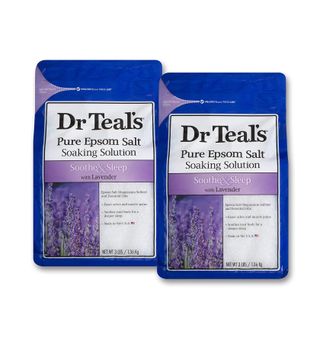
Epsom salt is also a source of magnesium. Poon says it can help your muscles relax, which can help ease your body into a presleep state.
Use Essential Oils
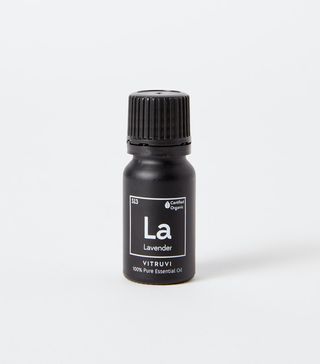
Diffusing certain essential oils can be a form of aromatherapy and can help you drift off to sleep. Lavender, vetiver, patchouli, sandalwood, and chamomile are some to try.
Wellness Practices
Create A "Deceleration" Ritual

Shojai recommends developing a "deceleration" ritual of cutting down screen time and doing some mind-body practices to calm the mind before bed. Think of it as anything that helps quiet or calm your brain.
Practice Yoga
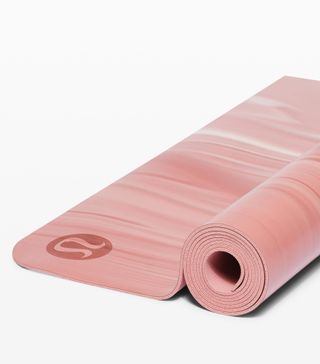
Restorative yoga is a great way to unwind at the end of the day. Plus, it helps you stretch out, which can feel so good—especially if you sit at a desk most of the day.
Meditate
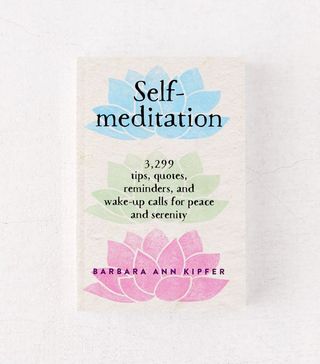
Meditation can provide some stress relief, so try it before bed. It doesn't have to be too long. Even a five-minute session can help. Shojai suggests cutting out the bright lights and devices by 7 p.m. and doing 15 minutes of quiet breathing and meditation before bed.
Do Some Deep Breathing
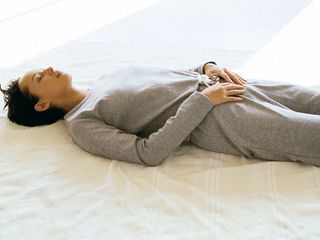
Breathing exercises are also so calming. Taking deep breaths can signal to your body and mind that it's time to go to sleep.
Exercise Regularly

Regular workouts can help your sleep routine, but you want to time them correctly. "Working out right before bedtime can raise your core body temperature and release endorphins, which will make you more alert and less likely to be able to fall asleep," Rueven says. "Give yourself two to three hours before bedtime to unwind after your workout."
Next up: How to Function on No Sleep (Because We've All Been There)
Disclaimer
This article is provided for informational purposes only and is not intended to be used in the place of advice of your physician or other medical professionals. You should always consult with your doctor or healthcare provider first with any health-related questions.
Sarah is lifestyle writer and editor with over 10 years of experience covering health and wellness, interior design, food, beauty, and tech. Born and raised in Los Angeles, she attended New York University and lived in New York for 12 years before returning to L.A. in 2019.
In addition to her work on THE/THIRTY and Who What Wear, she held editor roles at Apartment Therapy, Real Simple, House Beautiful, Elle Decor, and The Bump (sister site of The Knot).
She has a passion for health and wellness, but she especially loves writing about mental health. Her self-care routine consists of five things: a good workout, “me” time on the regular, an intriguing book/podcast/playlist to unwind after a long day, naps, and decorating her home.
-
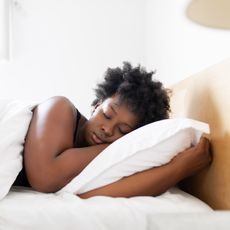 Add This 5-Minute Trick to Your Bedtime Routine to Fall Asleep Faster
Add This 5-Minute Trick to Your Bedtime Routine to Fall Asleep FasterYou'll be so relaxed.
By Sarah Yang
-
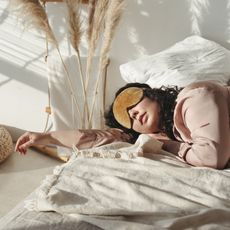 10 Things That Can Mess With Your Sleep—and What to Do About It
10 Things That Can Mess With Your Sleep—and What to Do About ItGet quality shut-eye.
By Sarah Yang
-
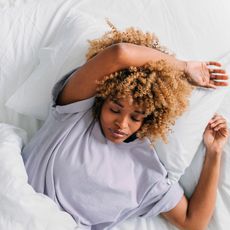 12 Natural Remedies to Try When You're Wide Awake and Want to Fall Asleep Fast
12 Natural Remedies to Try When You're Wide Awake and Want to Fall Asleep FastOff to dreamland.
By Sarah Yang
-
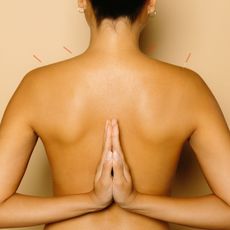 After Just 4 Sessions, I'm Completely Hooked on This Ancient Wellness Treatment
After Just 4 Sessions, I'm Completely Hooked on This Ancient Wellness TreatmentIt's surprisingly relaxing.
By Drew Elovitz
-
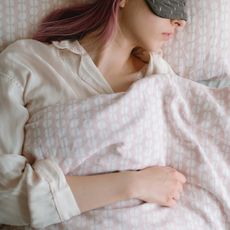 This Supplement Just Might Help You Get to Sleep Faster
This Supplement Just Might Help You Get to Sleep FasterAn option for your bedtime routine.
By Sarah Yang
-
 These Relaxing Yoga Poses May Actually Help You Fall Asleep Tonight
These Relaxing Yoga Poses May Actually Help You Fall Asleep TonightBreathe in, breathe out, and set your phone to airplane mode.
By Lindy Segal
-
 All About Ear Seeds, the Acupressure Secret That Could Ease Your Anxiety
All About Ear Seeds, the Acupressure Secret That Could Ease Your AnxietyThey’re a staple of traditional Chinese medicine.
By Lindy Segal
-
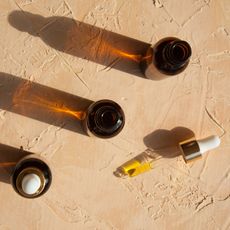 CBN for Sleep: Everything You Need to Know About This Buzzy Ingredient
CBN for Sleep: Everything You Need to Know About This Buzzy IngredientHere's the 411.
By Sarah Yang
